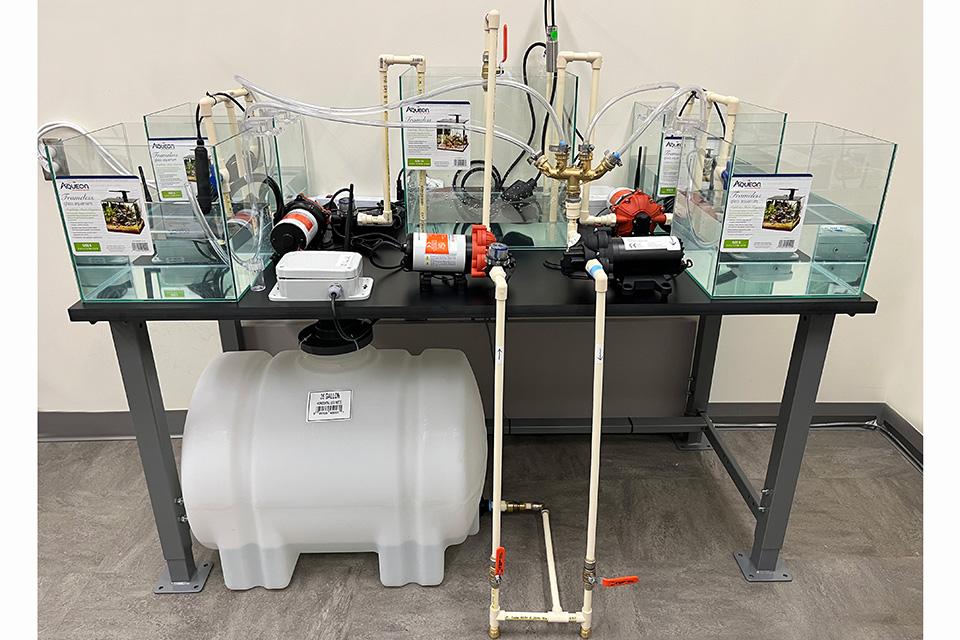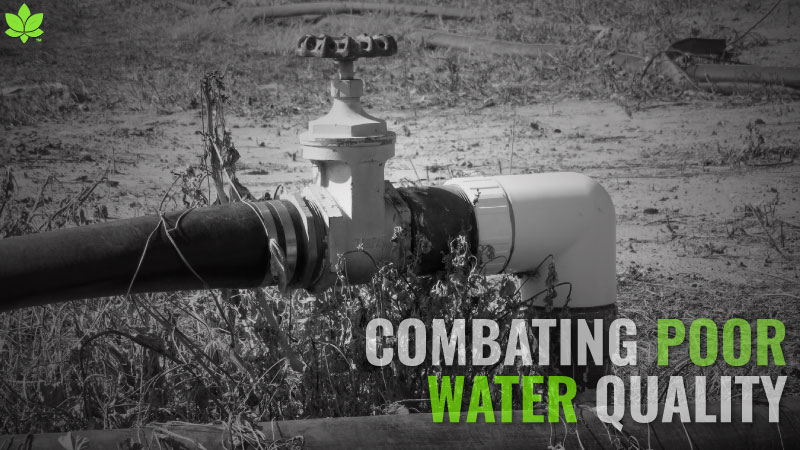AI Tech Poised To Play Big Role in the Next Evolution of Ag

Top universities, like Virginia Tech and the University of Missouri, are working with passion and perseverance to determine how artificial intelligence (AI) can help farmers work safer and smarter. Thank you to these researchers who took time to discuss with us their work on protecting and sustaining our nation’s water and food supply.
Cyber Biosecurity
Feras A. Batarseh, Associate Professor with the Department of Biological Systems Engineering at Virginia Tech (VT), leads the first fully automated AI and Cyber for Water and Ag lab (ACWA) in the world.
Most people associate cybersecurity with their email or social media getting hacked. Why does it matter in ag?
“There have been more than 18 cases and attacks on water systems in the U.S.,” Batarseh explains. “Given the rising need for AI in both the ag and water domains, our lab has been partnering with farmers all over the state, as well as water treatment facilities, to protect and mitigate relevant issues using emerging technologies such as AI.”
VT’s ACWA lab has created a test bed that analyzes water supply systems, water distribution systems, and water treatment plants in the U.S. to detect and protect against potential incidents like cyberbioattacks. The lab is able to generate data by creating fictitious cyber and computational attacks that could impact water quality and quantity, such as water flow, pH, and nitrogen rates.
In addition, Batarseh’s team is working with partners at the Institute of Advanced Learning and Research in Danville, VA, on using AI to secure controlled environment agriculture. They’re also working with 11 agricultural research and Extension centers around the Commonwealth of Virginia, and each location has a different focus.
“VT has a network of Extension farms. We run tests on those farms, collaborate with the farmers, and utilize those spaces as testbeds,” Batarseh explains.
And in exchange, his team provides farmers with the AI algorithms to enhance the tools and farming methods for their farms.

One of many water tests in the ACWA lab at Virginia Tech, this Cyber-water system is a star topology test. It has a 15-gallon capacity, multiple pumps, tubes, valves, tanks, and pipes. Using AI, it measures water characteristics and detects potential cyberattack scenarios.
Photo courtesy of Virginia Tech
Crop and Field Management
At the Digital Agriculture Research and Extension Center (DAREC) at University of Missouri, Jianfeng Zhou leads a team of faculty members in evaluating how AI can help ag growers make informed decisions on crop and field management. According to Zhou, this includes variable seeding rate, nitrogen applications, soil amendments, and conservation practices.
“We use wireless soil and crop sensors, drones, and cameras to collect data of soil, plants, water, and climate at high spatio-temporal resolution,” Zhou says.
The team, whose primary role is Extension, then correlates their findings with data of crop yield and grain quality using AI algorithms. Zhou explains, “We expect the research can tell us how to manage the field to maximize profit, such as when and how much nitrogen to apply, and what practices to employ to improve soil health and yield.”
Since this is a new project for the DAREC, the team is expecting several outcomes, including an AI-enabled field assessment tool based on satellite, drone and/or smartphone for early crop management and crop stress detection.
According to Zhou, they expect the fast assessment tool to build explainable and applicable prescription maps for variable-rate applications, such as nitrogen application, seed placement, and pest management. The decisions will be made based on big data of soil, seed, climate, and field conditions.
This is a long-term project. Zhou outlines the major sequential steps:
• Big data acquisition for developing AI models (three to five years)
• AI model validation in production fields where they will work with farmers to conduct on-farm trials for the AI technology
• Technology maturity and commercialization to make it available to farmers (five years later).










